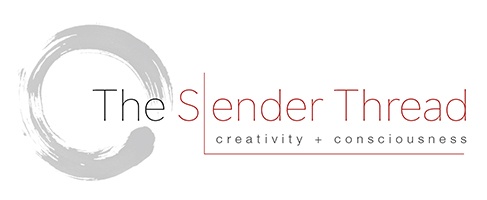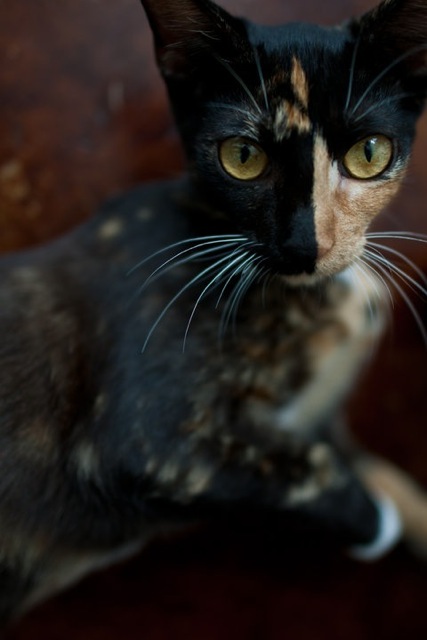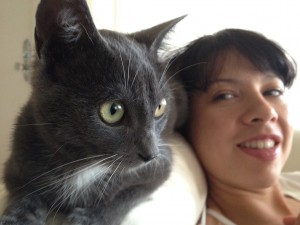Death as an Advisor
Death has an interesting way of waking us up to life. Last week, our cat Mimi was hit by a car and passed away peacefully, suffering a blow to the spine. We miss her little squeaks, affectionate disposition, and even her mischievousness. We’ll miss having to shift around in bed, so as not to disturb her or roll over her (amazing how something less than 10 pounds can fill up an entire queen sized bed!). We’re angry that we weren’t paying greater attention and we weren’t there to sweep her out of the street in time to save her life. And we’re mostly remorseful that her life was so short—that she won’t be chasing birds anymore, she won’t be laying in the sun, and won’t be able to express her essential nature on this plane of existence any longer.Her passing brings to mind all the loved ones (both animal and human) who have passed, and all the rest who are still here. What strong emotion and suffering brings to us is a certain kind of grace. As Ram Dass teaches: suffering is grace. What we wish most for ourselves and for others, once we see past the fantasy of the ego, is the fulfillment of life itself. We wish to completely embody this incarnation – as people, pets, lovers, teachers, and friends.
There is only the eternal now. In our moments of presence we can know the now directly. Most of the time however, we are locked into our endless thinking of the past or future and trapped in our crystallized attitudes. Our mental churning and our self-centered stance prevents genuine awareness. Many spiritual teachers acknowledge that an experiential awareness of our own death is one of the few realizations that can truly help us awaken to this moment and all that it contains.
When we embark on a spiritual path, it’s pretty easy to get swept away in the hyperbole of whatever practice we are engaged in. We think about reincarnation, dharma and the meaning of our life and all of its mysteries. Somewhere in all of this we oftentimes push away life itself by covering it over with abstractions and theories of the unknown. The mind overcomes the heart and as a result we forget that principles are meant to inform reality, not replace it.
In communion with others, we hope that we can somehow contribute to each other’s life fulfillment. This doesn’t mean buying people fancy gifts, or flattering their egos. It means taking the time to truly tune into to who they are, seeing beyond external packaging, going beyond our likes, dislikes and petty disagreements to come to a wordless understanding of their true being. We aim to allow ourselves to become perfect mirrors for each other—and in doing so allowing everyone we meet to naturally express who they really are in our presence.
Animals and children both provide us with good practice for this, since they don’t yet have much of a conditioned personality. They are as they are. They are emotionally transparent, and therefore it’s easy for us to see their essence. In their own small way, they train us how to be with each other in the larger world. As we move through life, we collect ways of being and thinking that were developed to support an idea of who or what we think we ought to be. Any other notions of self are rejected out of fear. This becomes the way we are in the world—rejecting some people, accepting others.
Yet, is it possible to entertain the idea that part of each person’s work in this life is to embody their own essential being and, in doing so, assist in the embodiment of other people’s essence as well? Can we see past the trappings of the ego, both our own and other’s, in an effort to connect with the soul?
Anyone who has lost someone close to them has undoubtedly felt the remorse of not “being” there as much as we could have been. It’s my sense that this remorse arises out of our own realization that indeed we have not been transparent to those who mean the most to us. We have allowed our preoccupation with the needs of the ego to override the necessity of transparency and openness with those around us.
One of the useful exercises that can help us return to this moment, the now, is the striving to separate perception from opinion. Our perceptions, our capacity for seeing, are ongoing and take place in every moment. Life is change and new impressions are taken in continually that offer new information, modify existing judgments, and assist in the evolution of our understanding. Fixed viewpoints, crystallized attitudes often arising from the past, from fear, and most of all, from our cherished opinions, represent large obstacles to direct perception. We cannot know and feel the essential nature of what or who is in front of us unless we remain open and transparent, free of past beliefs and standpoints. If our world is to evolve, we are going to need (as a culture) to move beyond partisanship, or identifying with a particular belief structure or fixed way of seeing, and learn to separate direct perception from opinion. In our last blogpost, philosopher Jacob Needleman reminds us that Plato and Socrates teach that the very first freedom that we can seek is freedom from opinion.
While Mimi’s passing leaves a hole in our life, we are reminded of how deeply we are capable of truly feeling. This was Mimi’s gift to us, as it is our gift to each other. We do not know what life—with its inevitable changes—has in store for us. Yesterday, on an intuitive impulse, we visited the Humane Society and a beautiful four-month old kitty captured our hearts. She is now part of our family and learning to adjust to us, our new home, and her new life. Her name is Hina. And we are striving to see and learn who she is—without thinking we know, and without assuming that she should be in any certain way. Who is this new creature that has entered our lives?
Informed by Buddhist practices to some extent, we find it useful to keep in mind that all things are forever changing, transforming, ending, and beginning again. Even though it’s unlikely that those of us in the postmodern West will be engaging in meditations in burial grounds, we can still learn from the wisdom of such a practice. Frequently in life, particularly in relation to those with whom we may have conflicted relationships with, can we imagine what our emotional landscape would be like if we were informed of their sudden passing. In each and every situation, the perceived gravity of the conflict dissolves instantly when contextualized by the certainty of earthly impermanence. Practices such as these illuminate what has continuance beyond the body, mind, and lower emotions. Authentic feeling—compassion, deep remorse (not guilt), joy, and love—exist within us and beyond us. Such feelings connect us to each other, the earth, and the unknown.


